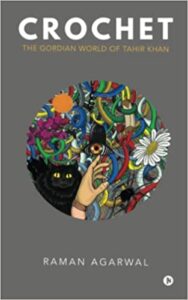Book delves into dark world of depression, schizophrenia

BOOK REVIEW
Julia Dutta
 “The line disconnected. It was 3:00 A.M. I drew my knees closer to my chest and hugged them for warmth and company. The woman in the yellow window still combed her hair. The yellows inside made the night seem darker. The blacks outside made the light seem brighter. By morning, the light would fade, and the darkness would dilute. Rights and wrongs might swap places. I passed out on the terrace, waiting for the sun to put off the fire that the rain had started.”
“The line disconnected. It was 3:00 A.M. I drew my knees closer to my chest and hugged them for warmth and company. The woman in the yellow window still combed her hair. The yellows inside made the night seem darker. The blacks outside made the light seem brighter. By morning, the light would fade, and the darkness would dilute. Rights and wrongs might swap places. I passed out on the terrace, waiting for the sun to put off the fire that the rain had started.”
These poignant words from the book, Crochet – The Gordian World of Tahir Khan, tug at the reader’s heart even as the book rests in the hands anxious to be read.
The fact is everyone and his uncle is talking about it. Yet most are afraid of it: worse, in denial of it when it comes to themselves.
Indeed, depression may be the new normal, but really it has been there much longer. Schizophrenia is a more dreaded word implying much worse mental conditions, but it has been a close cousin of depression, often posing as partners you can’t pass a pin through them! The two are best friends to a host of people who go undiagnosed due to lack of knowledge or reasons of stigma associated with both.
It was therefore refreshing to read Raman Agarwal’s debut novel, Crochet – The Gordian World of Tahir Khan, which deals with both the above-mentioned subjects in a matter-of-fact manner. He weaves a complex story of Tahir Khan, who lives in Delhi’s Jahangirpuri, where a number of families found refuge when they chose to be in India leaving their homeland in Pakistan.
 The story runs as a trail of failed love, indeed, one after another, which drive Tahir to become a complete recluse. And alone. But his loneliness is not singular to him. It has a history, running from past to present.
The story runs as a trail of failed love, indeed, one after another, which drive Tahir to become a complete recluse. And alone. But his loneliness is not singular to him. It has a history, running from past to present.
The book is a reflection of three lives who are pulled into the well of loneliness, his grandfather, his father, and of course Tahir himself. The cause of this state is even identical.
Given this background, Agarwal weaves a story that challenges facts around these people, whose vision is clouded by fictional characters and conversations with people and circumstances that don’t really exist. But the reader is never led to the facts until they reach the last part of the book. No wonder two persons critical to the story are also evasive characters — Saachi or Ghazal. But, Miss Mscavity, the black cat with green eyes, who kept Tahir Khan company even if all else deserted him was quite obvious, at least to me.
Written with tender loving care, there is no judgement cast on the characters. As a book on mental health, Agarwal has done an extremely fine job with the story. He took 10 years to complete the book and the reader can see it come alive.
Tahir is obsessed with his mother, her green scarf being his most beloved security blanket, which he preserves and treasures.
“If home is where your heart is holds any truth, Maa never lived in that house or any place else, but inside me. I would have never made it past my childhood, if not for her,” he says.
Tahir’s grandfather, who lost his wife during the birth of his only son Azar, was devastated and lost his mind in grief. The same fate was meted out to his son too, but Azar must keep a strong front, because strong men never cry. The emotional overload is palpable, as readers journey through Tahir’s life.
The 280-page book is absorbing but way too long and needs editing. The gory details of mental health of Tahir’s grandfather at the end of his life can be structured differently, incidents in Tahir’s own life need to be viewed and edited once again. The super-long descriptions of failed relationships can do with cut-to-size text to deliver the point only.
All in all, the book is profound but readers must set aside ample time to read it. The length of the novel serves as an opportunity as well, lending the author a chance to relook at the story and perhaps write an abridged version too with readers’ suggestions and comments. The challenge before readers is to crack the quiz of who is Saachi and Ghazal. The good news is Mscavity the cat can help the reader to solve it.
Book: Crochet – The Gordian World of Tahir Khan; Author: Raman Agarwal; Publisher: Notion Press (Indie); Pages: 280; Price: Rs. 300
(Dutta is an advertising professional & independent writer)




